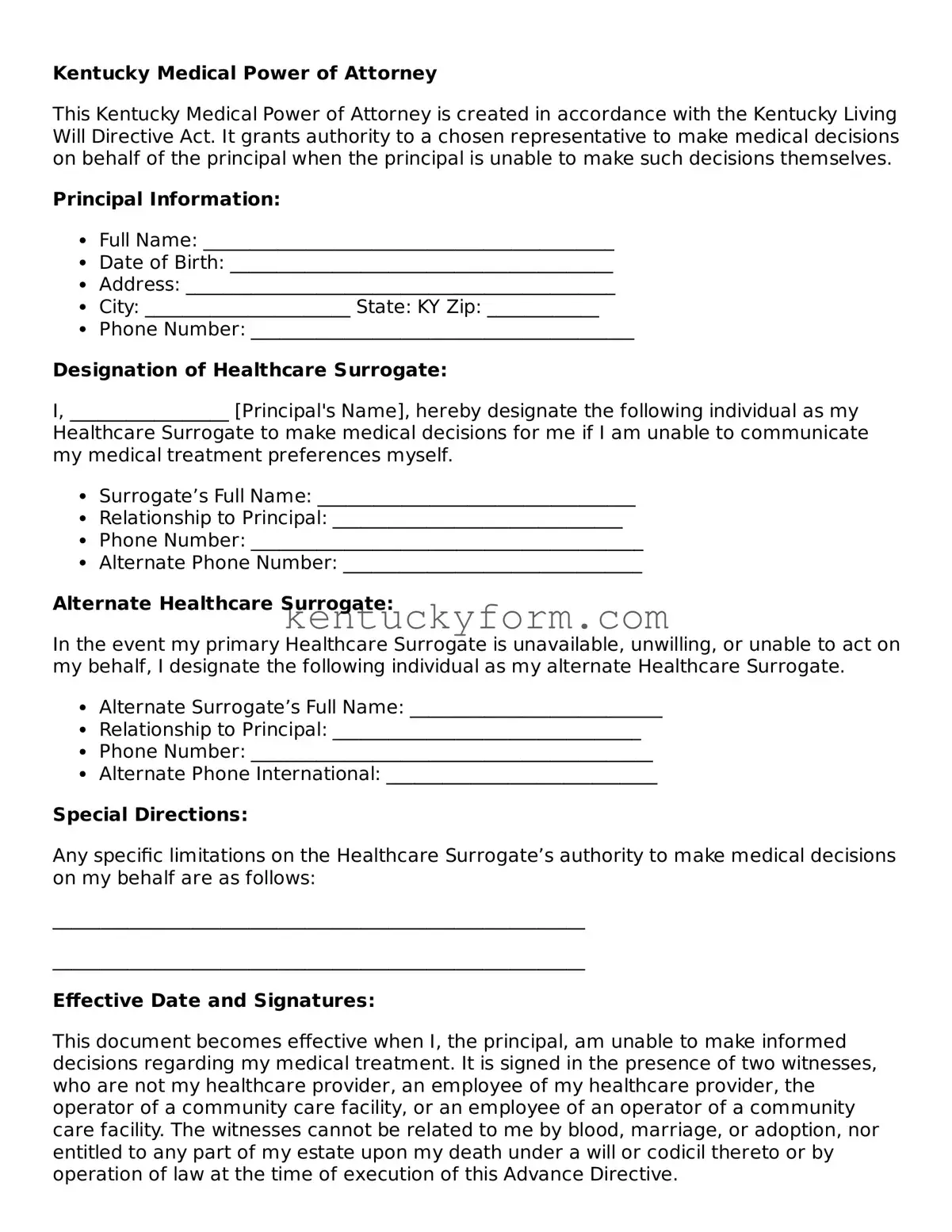Free Medical Power of Attorney Form for the State of Kentucky
The Kentucky Medical Power of Attorney form is a legal document that allows you to appoint someone to make healthcare decisions on your behalf if you are unable to do so yourself. This appointed person then has the authority to make important medical decisions, ensuring your healthcare wishes are respected, even when you can't communicate them. For those wanting to ensure their healthcare preferences are honored, filling out this form is a crucial step.
By clicking the button below, you can take the first step toward securing your medical preferences.
Modify Document

Free Medical Power of Attorney Form for the State of Kentucky
Modify Document

Modify Document
or
Free Medical Power of Attorney File
One quick step left to finish
Edit, save, and download Medical Power of Attorney online with ease.